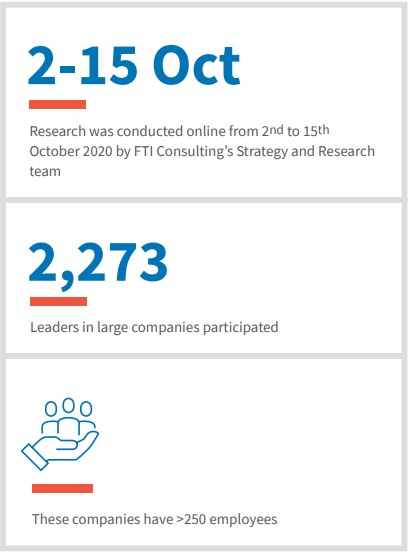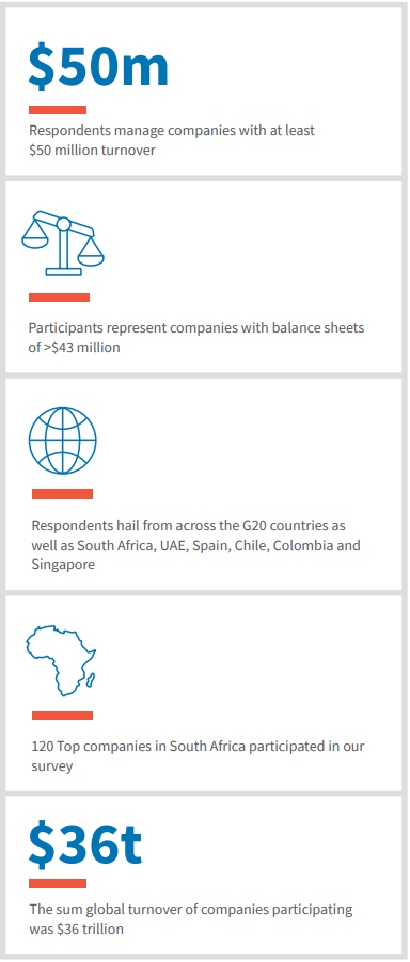Introduction
FTI Consulting's Resilience Barometer" data reveals how, for too many organisations in South Africa, the pandemic has exposed a lack of resilience across critical areas: from business models, to supply chains, and from crisis management, to regulatory changes in an increasingly fragmented world.
"Whatever the business, industry or geography, a collective understanding of resilience is now critical."
Operational risks present before the pandemic have been amplified. COVID-19 has added complexities of its own to the picture. These include disturbances to the supply chain and general operational disruption stemming from social distancing and hygiene measures – not least the move to mass working from home.
FTI Consulting's Resilience Barometer seeks to guide companies on how best to navigate the continuing disruption and uncertainty, and increase their resilience: that is, to ensure they are prepared for whatever comes next
Methodology
Drawing on insights of global C-suite professionals, FTI Consulting's Resilience Agenda captures the experiences of business leaders facing major challenges – whether commercial, technological, reputational or legal. These learnings are encapsulated in eight resilience levers: key areas of focus that decision-makers must navigate in a fast-paced, disrupted environment.
Resilience Levers
- Business model and workforce transformation
- Operational and financial resilience
- Remediation and dispute resolution
- Government and stakeholder relations
- Digital trust and ecosystems
- Economic impact and sustainability
- Escalation planning and response
- Real-time data analytics


To read the full article click here
The content of this article is intended to provide a general guide to the subject matter. Specialist advice should be sought about your specific circumstances.


